Our community participated in a wide range of meaningful and inspiring events this year. From creating new home-grown events, to traveling the world to present research, our students, staff, and faculty are making an impact wherever they land! Read on for a sampling of some of our activities.
Annual Farm Tour - New Entry Sustainable Farming Project
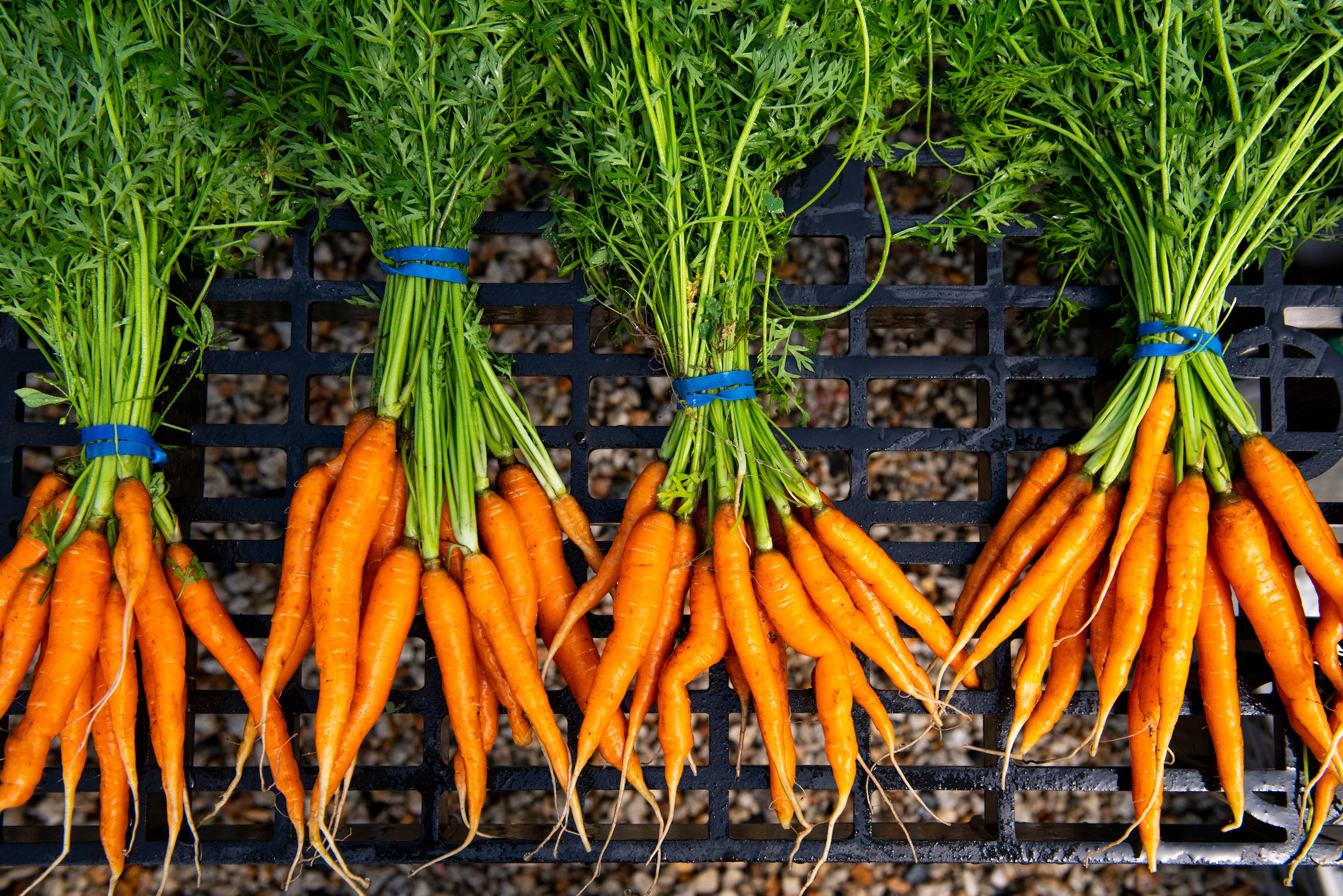
Each year, New Entry Sustainable Farming Project (NESFP) opens their ‘doors’ and welcomes the community for a tour at their incubator farm sites for an afternoon of fun and farming in the field. The tour gives an insider’s view of the beginning farmer incubator training sites and what it takes to farm on ¼ acre. Attendees learn from project farmers and staff about New Entry's beginning farmer training programs, farmland preservation efforts, and farm employment resources.
New Entry resides on the scenic grounds of Moraine Farm, a classic Olmsted landscape, where areas are separated by function in a creative design that respects the natural topography of the land. Visitors participated in guided farm and Food Hub tours, getting a chance to experience an educational walk through the fields, learn about organic crop production, and see how NESFP coordinates and sends out the hundreds of fresh food donations they harvest from their organic demonstration plot every week.
Along with activities for kids, music, and edible samplings from their organic farming demonstration plot, the event also featured a unique incubator farmers market. Housed in the historic 1882 barn designed by Frederick Law Olmsted, the market highlighted current farmers launching their startup farming operations on the New Entry incubator plots.
The Walker Prize
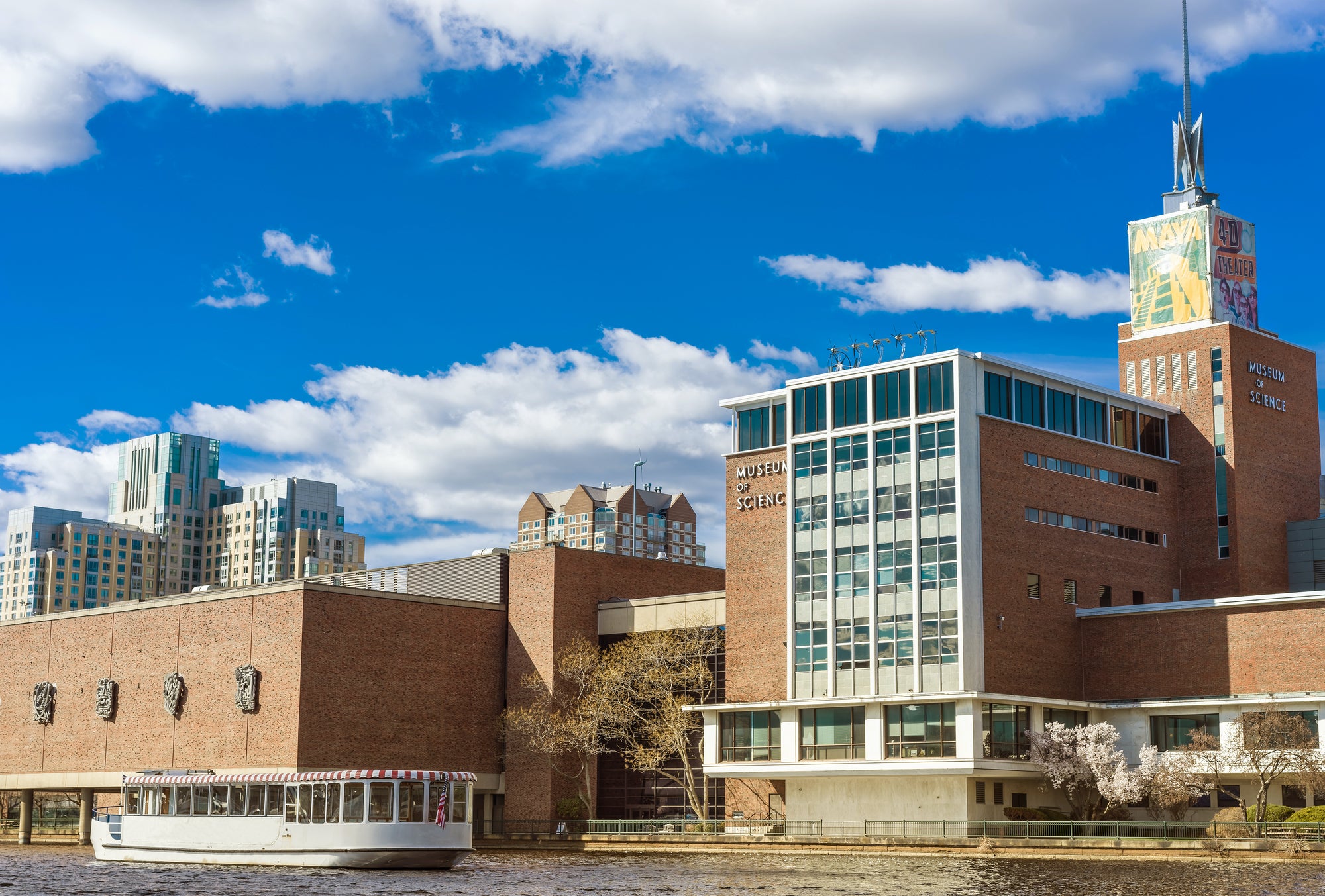
In September 2018, The Boston Museum of Science celebrated the preeminent work of nutritional epidemiologist and cardiologist Dariush Mozaffarian, MD, DrPH, dean of the Friedman School of Nutrition Science & Policy at Tufts University, by presenting him with the esteemed Walker Prize. The award was conferred at a public event held at the Museum of Science, Boston in the Cahners Theater on September 24. Dr. Mozaffarian discussed his work in a lecture titled, "The Future of Food and Nutrition: Implications for Science, Dietary Guidelines, and Food Policy."
“We are honored to recognize Dariush Mozaffarian with this year’s 2018 Walker Prize for his critical research and public advocacy in making nutrition and the business of how we eat at the forefront of public conversation,” said Ioannis Miaoulis, president and director of the Museum of Science. “Dr. Mozaffarian’s research has contributed significantly to our understanding of nutrition science and nutrition policy and has helped us to see the impact food systems have on our health, our environment, and on our economy.”
Established in 1864 by Dr. William Johnson Walker, one of the most eminent surgeons of his era and a generous benefactor of the Boston Society of Natural History, the Museum's founding organization, the Walker Prize recognizes "meritorious published scientific investigation and discovery" in a scientific field. (MOS.org)
The Tufts Nutrition Data Summit
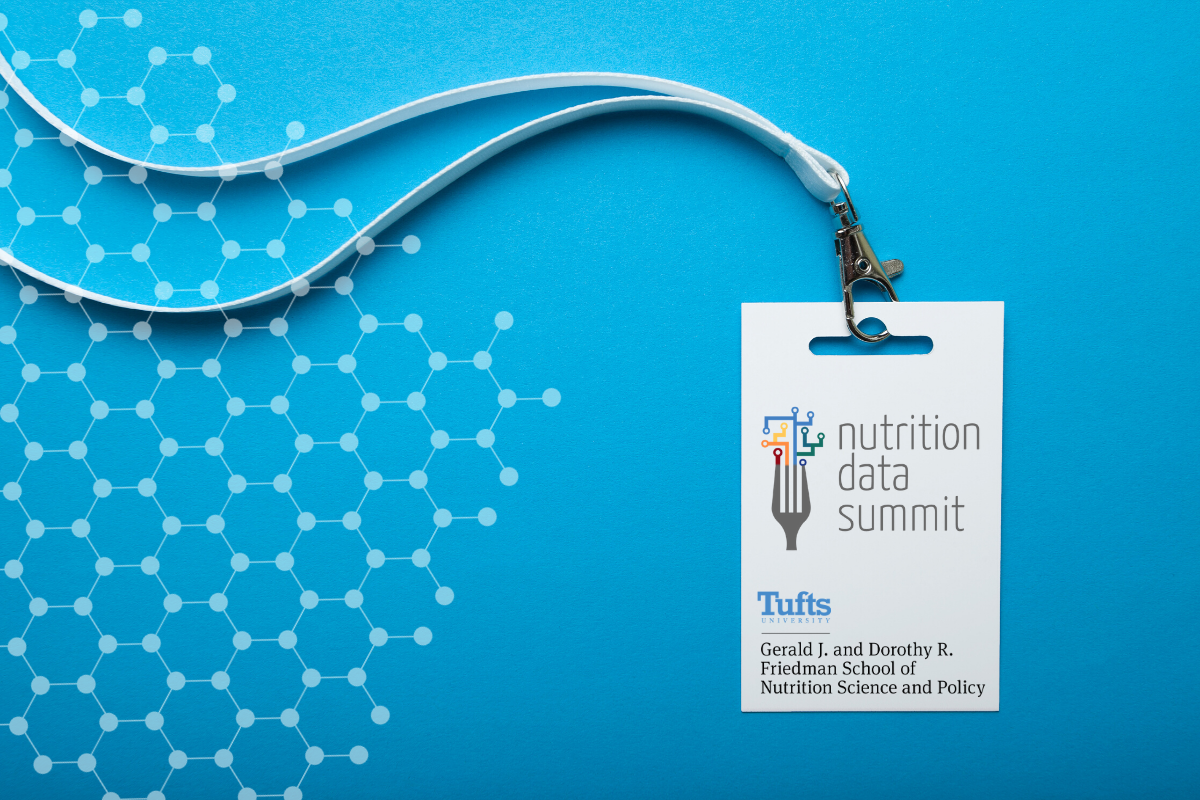
The first annual Nutrition Data Summit was a student-run initiative to the gap between nutrition and data sciences among students and professionals.
The Summit was held from October 4-6, 2018 at the Friedman School of Nutrition Science and Policy. The aim: To engage students from all universities in the Greater Boston area, and connect them to Friedman alumni, practitioners, nonprofits, and companies actively working in the field of nutrition data sciences.
The event featured interactive workshops on statistics and data visualization, debates on data challenges in nutrition, and a crisis simulation on nutrition-related humanitarian emergencies. Discussions spanned across disciplinary boundaries to highlight methods of other data science and computationally intensive fields, highlighting the four themes of the summit: Connect, coordinate, collaborate, and create.
Jean Mayer Prize + 40th Anniversary Celebration
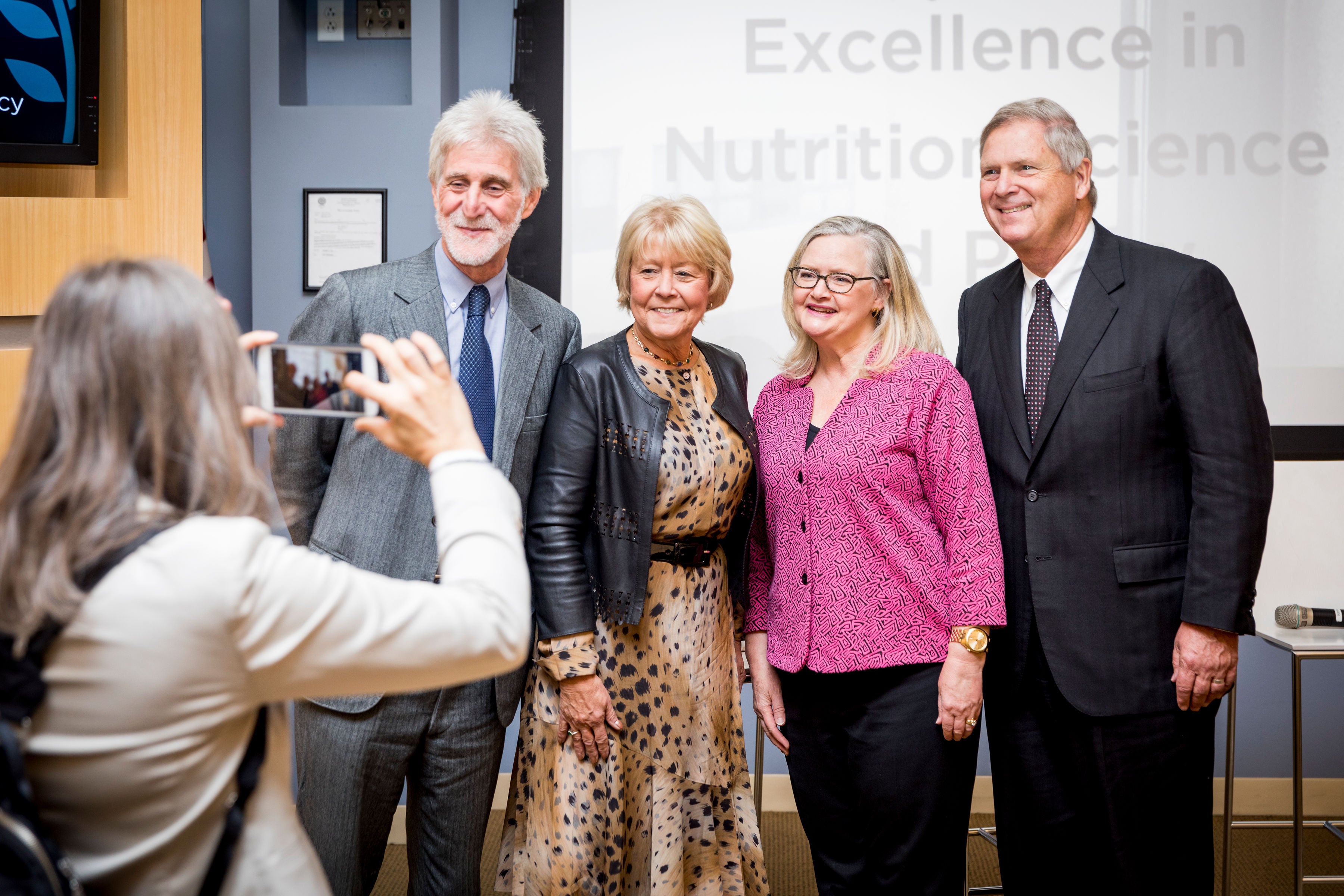
The Jean Mayer Prize is a new biennial award, supported through a gift to the Friedman School from John Hancock, to recognize outstanding achievement and work in science and/or policy related to food and nutrition. Named for the 10th president of Tufts University and a leading nutrition scientist, the award honors leaders who continue Jean Mayer's legacy of advocating for policies and programs to reduce hunger and poor nutrition and to improve diet quality for all.
At an Oct. 18 celebration on Tufts’ Boston Health Sciences campus, the 2018 prize was awarded to:
- Tom Harkin, who served Iowa's 5th Congressional District in the U.S. House of Representatives from 1975 to 1985 and was a U.S. senator from 1985 to 2015. During his time in the Senate, Harkin served as chairman of the Committee on Health, Education, Labor and Pensions, and the Committee on Agriculture, Nutrition and Forestry.
- Tom Vilsack, 40th governor of Iowa and the nation's 30th secretary of agriculture. He is now president and CEO of U.S. Dairy Export Council.
- The Center for Science in the Public Interest (CSPI), a nonprofit health-advocacy group that focuses on nutrition and food safety. Based in Washington, DC, CSPI represents nearly 500,000 subscribers to its Nutrition Action Healthletter.
- Mission: Readiness, an organization including 700+ retired admirals, generals, and other top military leaders that aims to strengthen national security by ensuring children stay in school, stay fit, and stay out of trouble. Their reports on nutrition and military readiness include "Too Fat to Fight" and "Unhealthy and Unprepared," which was released earlier this month.
The Friedman Food Policy Action Council (FFPAC)
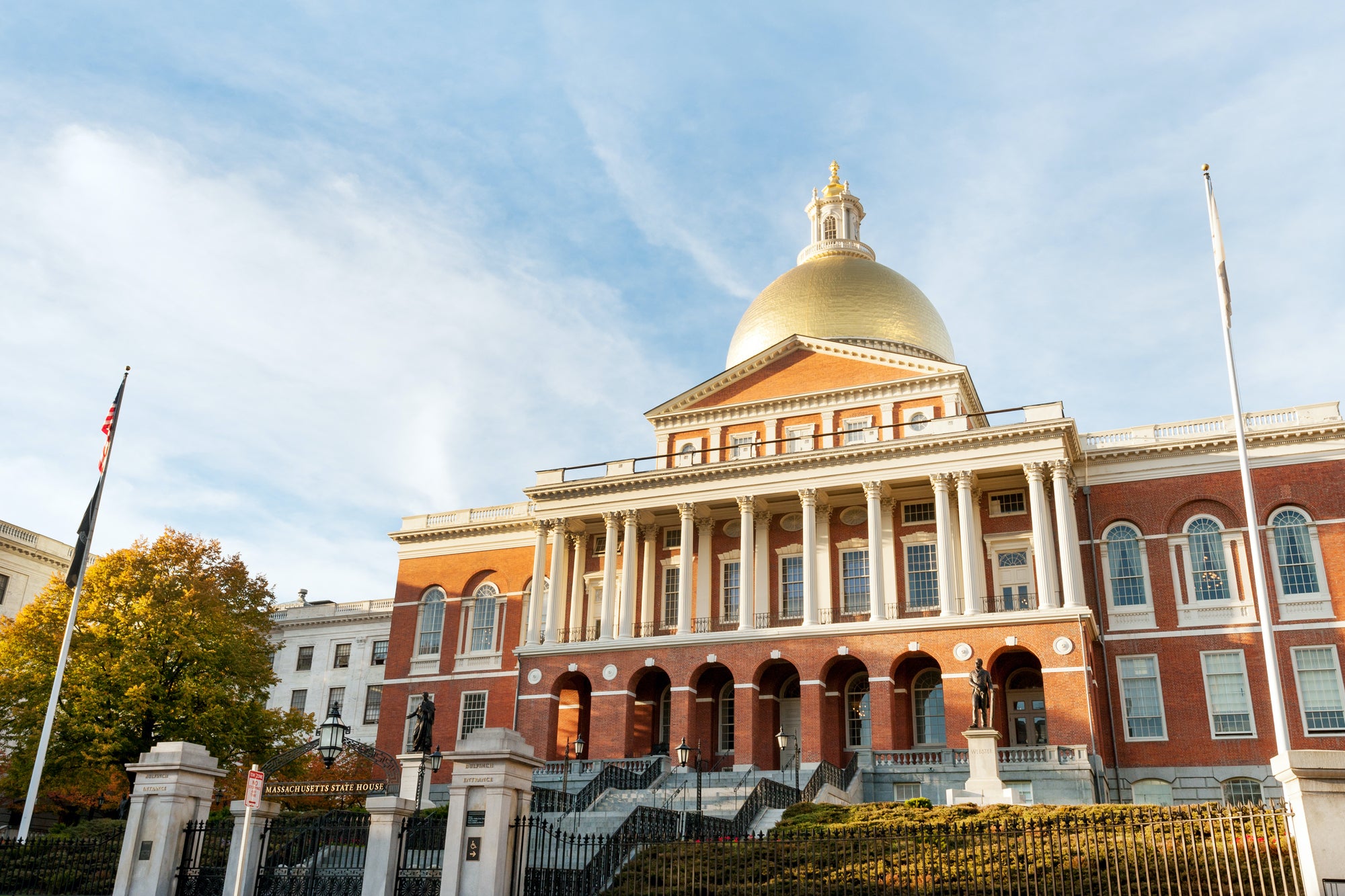
In March 2019, The Friedman Food Policy Action Council - FFPAC (a student group founded in early 2018), The Greater Boston Food Bank (GBFB) and Project Bread organized an Advocacy 101 Training to learn how to take steps toward ending hunger through political action.
The training covered the basics of the legislative process and timeline, legislative priorities that support hunger relief, and the importance of the individual's role in influencing legislative action on those priorities. The Massachusetts Emergency Food Assistance Program (MEFAP), the Supplemental Nutrition Assistance Program (SNAP), and Breakfast After the Bell, were all explored during this session.
Students and volunteers had the opportunity to practice grassroots advocacy tactics, like making phone calls, meeting with legislators, and sending emails. Local government officials were also present to help answer questions.
The following month, the Friedman Food Policy Action Council (FFPAC) celebrated the importance of graduate student involvement in public service by hosting a trip to the Massachusetts State House. House Co-Chairs of the new Food System Caucus; Representatives Dan Donahue, Hannah Kane, and Paul Schmid III were all present to discuss current initiatives and priorities.
Food Aid Quality Review (FAQR), Phase III Results
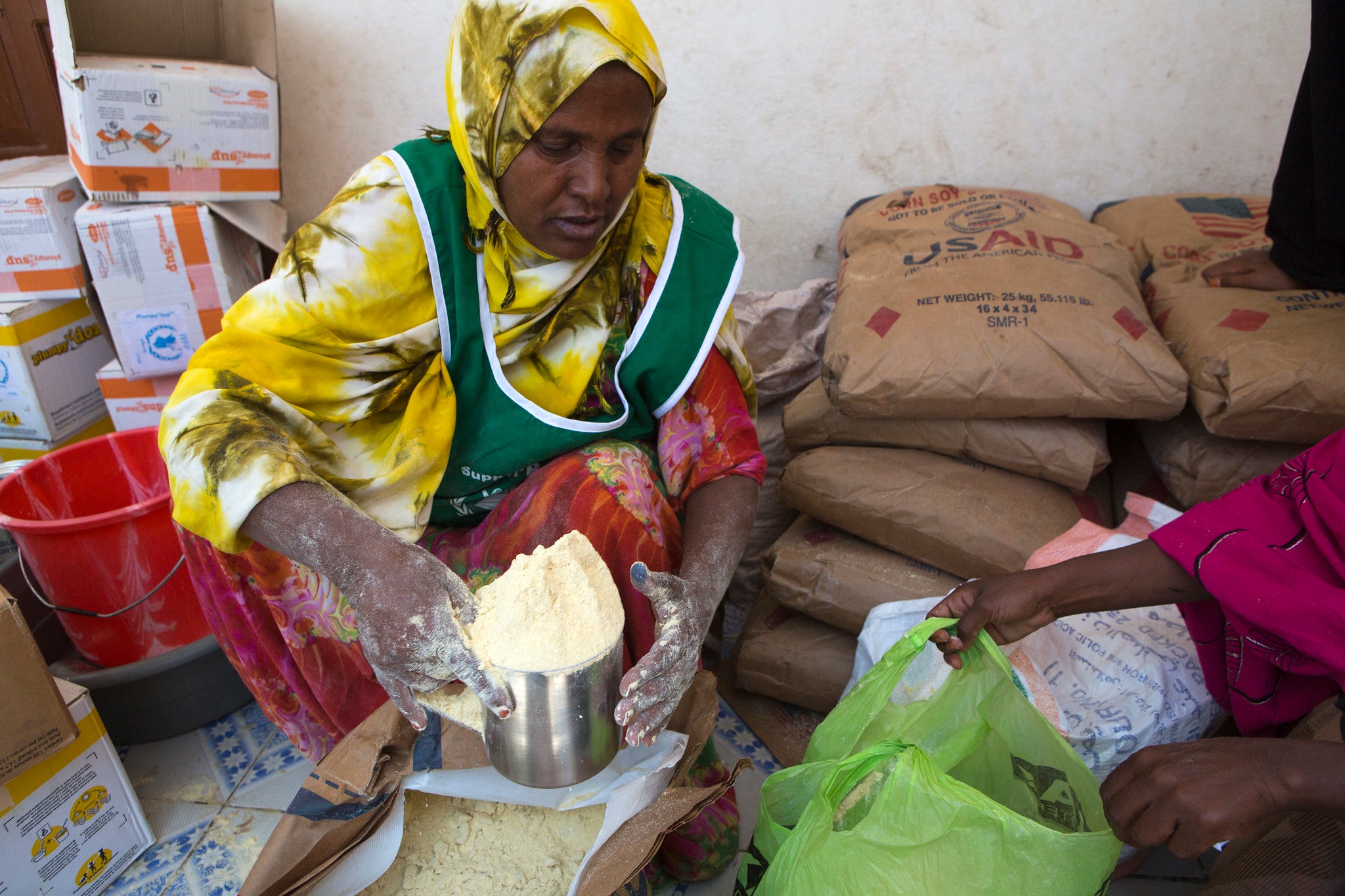
In March 2019, The Food Aid Quality Review (FAQR) Project and The TOPS Program presented "Progress, Innovations & Future Directions: Improving food aid products, processes and programs. Results from FAQR Phase III."
Some FAQR Phase III project activities, funded by USAID/Food for Peace, ended on January 31, 2019, and this event was a crucial gathering to share results, recommendations, and future directions from key technical areas.
Presentation topics included analysis of the USAID/FFP food aid basket and ration technical guidance; assessment of food aid packaging challenges and future innovations; findings related to food aid composition and bioavailability; improvements to food aid quality feedback loops; and possible efficiency gains in the last mile of food aid distribution.
FAQR is led by Alexander McFarlane Professor of Nutrition Patrick Webb, and Professor Bea Rogers
Breaking the Silence Symposium on Weight Bias
“We don’t realize what we’re saying can have huge implications for how people carry out their lives,” said symposium speaker Dr. Fatima Cody Stanford, an obesity medicine physician at the Massachusetts General Hospital’s Weight Center. That lesson informed her talk, using the terms “people with overweight” and “people with obesity” instead of “overweight people” or “obese people.” “Stating ‘obese person’ sets up a stigma before you begin the conversation,” she said.
Stanford listed the many factors that contribute to a person’s body weight—from the gut microbiome and the hunger response to the quality of available food, weight gain-inducing drugs, and environmental toxins. “We spend all our time focusing on the biological factor, but there are others,” Stanford said.
2nd Annual Entrepreneurship Competition
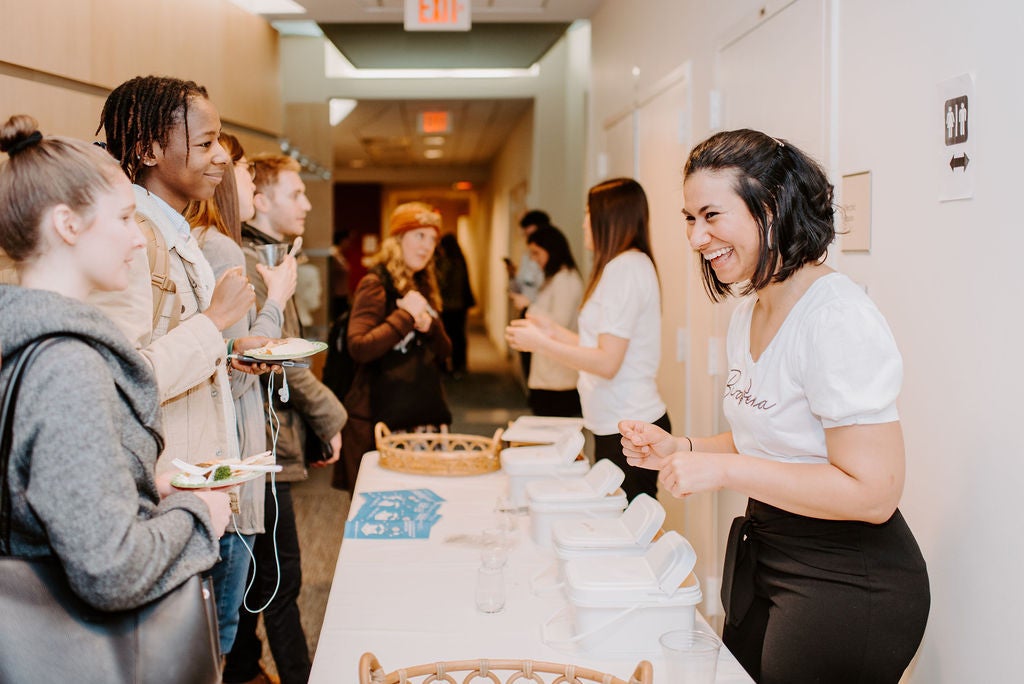
The 2019 Tufts Food and Entrepreneurship Competition ended in delicious fashion with the inventors of an oat cream desert by Team Baravena winning both the audience choice award and the top prize.
We've also covered this competition in depth in this year's Annual Report!
The 12th Annual Graduate Student Research Conference
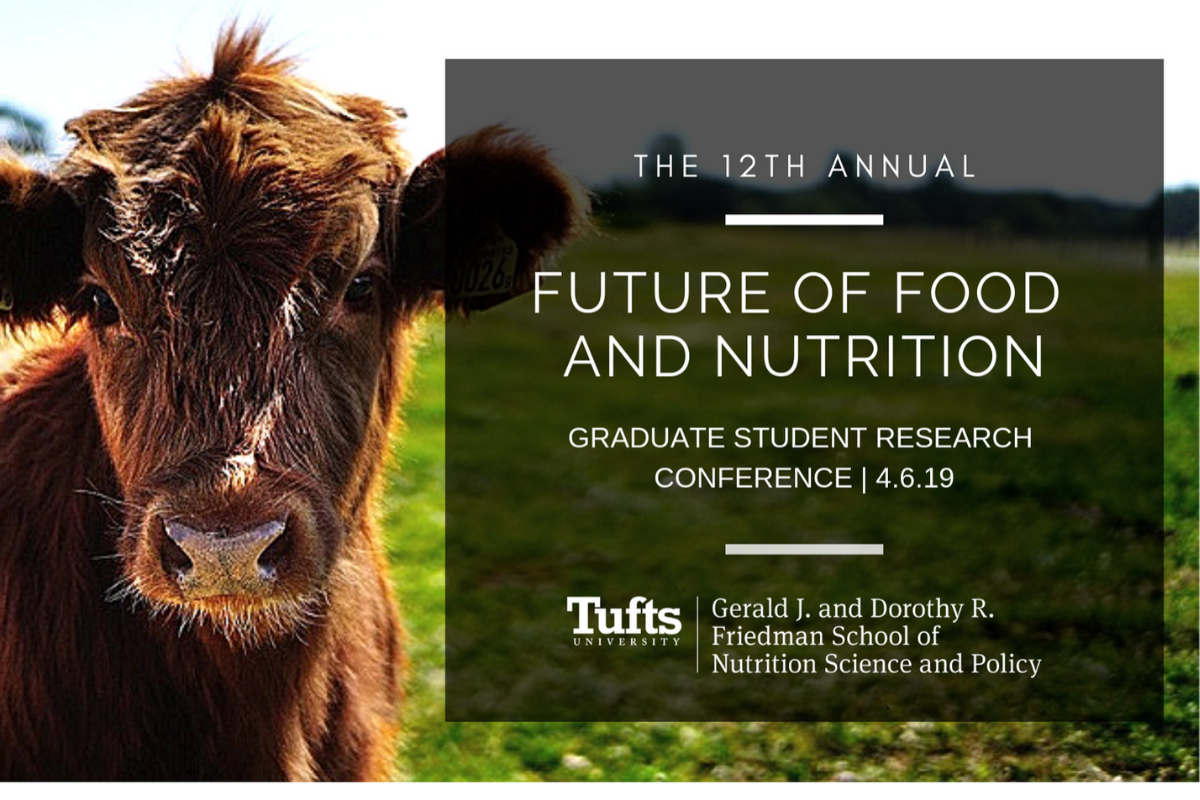
The Future of Food and Nutrition Graduate Student Research Conference, hosted annually by the Friedman School of Nutrition Science and Policy, provides a unique venue for graduate students to present original research related to food and nutrition. Historically, more than 200 attendees from over 50 different institutions have come together each year to hear students present research from diverse fields ranging from food anthropology to nutritional epidemiology.
Each year, both presenters and attendees gain valuable professional experience discussing novel, multidisciplinary research. The conference also provides a great opportunity for networking with fellow students and future colleagues – the next generations of leaders in the field.
This year's keynote speaker was Dr. Roni Neff, director of the Food System Sustainability & Public Health Program at the Johns Hopkins Center for a Livable Future. Dr. Neff researches changing food systems, with a focus on environmental sustainability and food system inequities.
An expert panel featured Matthew Hayek, assistant professor of Environmental Studies at NYU; David Kaplan, professor and chair of the Department of Biomedical Engineering at Tufts; and Nicole Negowetti, lecturer on law and clinical instructor at the Harvard Law School Food Law and Policy Clinic. Together, they discussed "Exploring Alternative Proteins: The Science, Policy, and Business of Plant Proteins and Cell-based Meats," provoking stimulating conversation and debate amongst attendees.
The student-led planning committee worked hard this year to build new elements into an already dynamic schedule. For the first time, conference attendees could choose from one of three workshops to expand their research toolbox and sharpen their presentation skills. Workshops included "Communicating your Research to the Public," with Senior Lecturer Corby Kummer; "Creating Interactive Web Maps with ArcGIS Online," with Carolyn Talmadge; and "Tools from the National Collaborative on Childhood Obesity Research," with Amanda Samuels.
The Gershoff Symposium: Why We Eat What We Eat
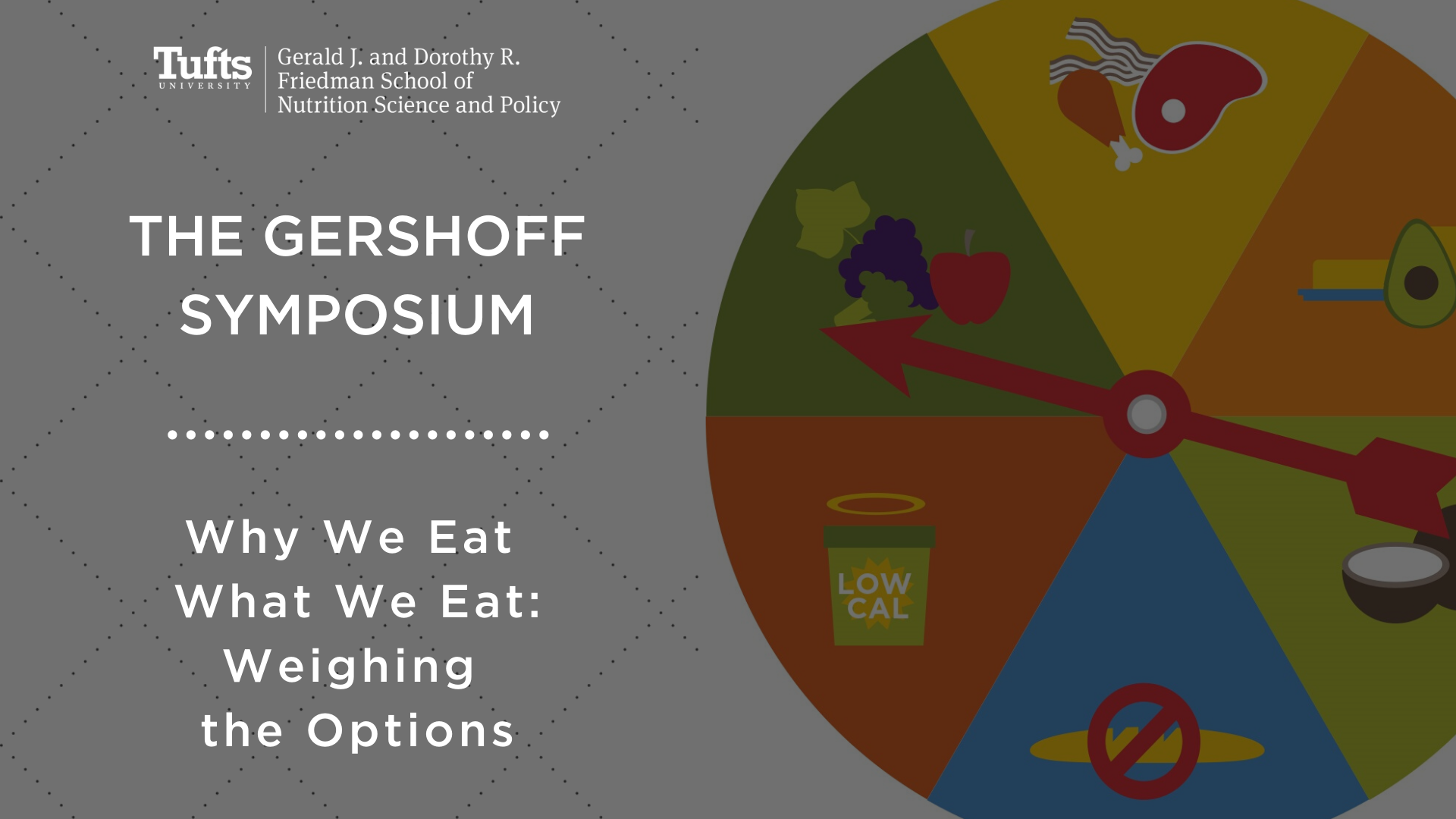
Why We Eat What We Eat: Weighing the Options
Featured
- Dolores Corella, PhD
Professor of Preventive Medicine and Public Health
University of Valencia-CIBER Obesity and Nutrition, Spain
- Tamar Haspel
Food, Health, and Science Journalist
Columnist, Washington Post
- David Levitsky, PhD
Professor of Nutrition and Psychology
Cornell University
- Maha Tahiri, PhD
Adjunct Professor
Tufts University
Alumni Award Recipients
- Excellence in Nutrition Award
Lu Qi, NG04
- Leah Horowitz Award
Amelia LoDolce, N08
- Rising Star Award
Tawanda Muzhingi N08, NG14
Pulse: The Atlantic Summit on Healthcare
.jpg)
In its fourth annual summit on health care in April 2019, The Atlantic gathered the industry's brightest minds to discuss thorny issues that confront the country, and the best paths forward. Corby Kummer, senior lecturer at Friedman, and senior editor at the Atlantic; and Professor and The New Balance Chair in Childhood Nutrition Christina Economos participated in this exciting event to talk about creating a healthier food environment.
Commencement 2019
Commencement addresses often focus on the idea of a bright future, but Congressman Jim McGovern’s speech at the Friedman School’s ceremony on May 19 was a little different.
“One in eight Americans are food insecure or hungry. One in six kids don’t know where their next meal is coming from,” McGovern told the graduating students at Friedman’s commencement ceremony in Cohen Auditorium, who received eight doctorates; seventy-six Master of Science degrees; eight Master of Science/Combined Dietetic Internship degrees; two Master of Arts in Humanitarian Assistance degrees; and fourteen Master of Nutrition Science and Policy degrees.
"Now more than ever, it’s important for Friedman graduates to step up and become advocates, educators, and activists, building a movement to end hunger in America and “make food a fundamental human right for every person,” McGovern said. “When you speak about these topics, people are going to listen to you. Your country needs your knowledge and experience, not just to make change, but to do good,” McGovern said. “You have been given the incredible gift of an education from the Friedman School. Now is the time for you to use that to make this a better world.”
Friedman School At ASN 2019

The American Society of Nutrition (ASN) award-winning Friedman School community turned out in full force to represent at this year's American Society for Nutrition annual meeting, Nutrition 2019.
Can food allergies be prevented? Does what we eat affect our susceptibility to diseases like dementia or cancer? Why does the same diet affect different people differently? How can we produce food more sustainably in the future? These were just a few of the fascinating questions discussed at this year's meeting, held June 2019 at the Convention Center in Baltimore.
HNRCA scientists and Friedman School staff, faculty, and students presented their research findings and participated in panel discussions addressing hot topics in clinical practice and policy. We captured a full rundown of everyone at Tufts University who won awards for their impressive work!
AAEA 2019 Developing Multidisciplinary Leaders Workshop
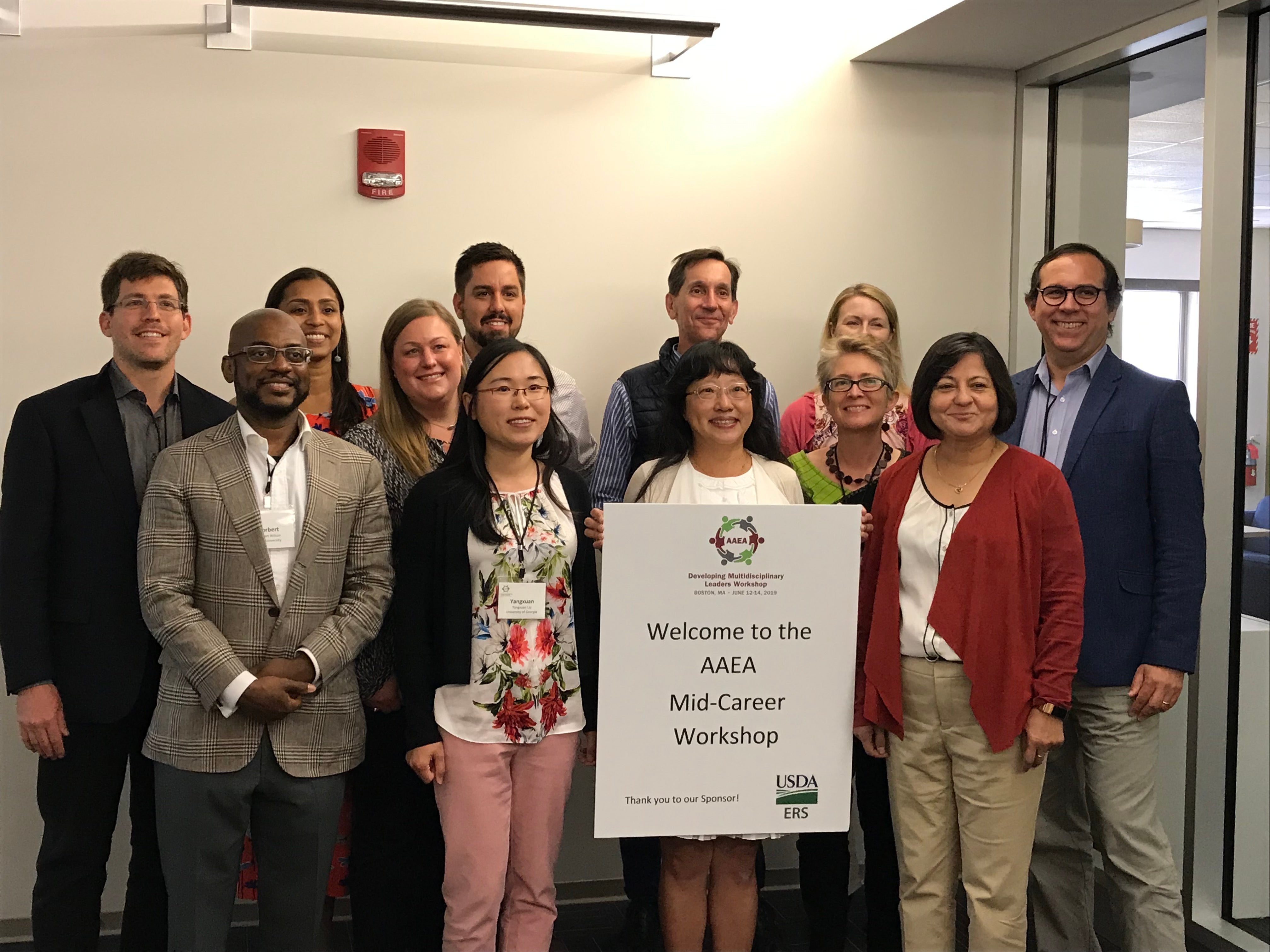
Members of the Agriculture and Applied Economics Association gathered for an event organized by Professor Norbert Wilson. The goal of the event and others like it is to foster multidisciplinary leadership among the AAEA membership and to create a system of mentorship for post-tenure or equivalent professionals.
